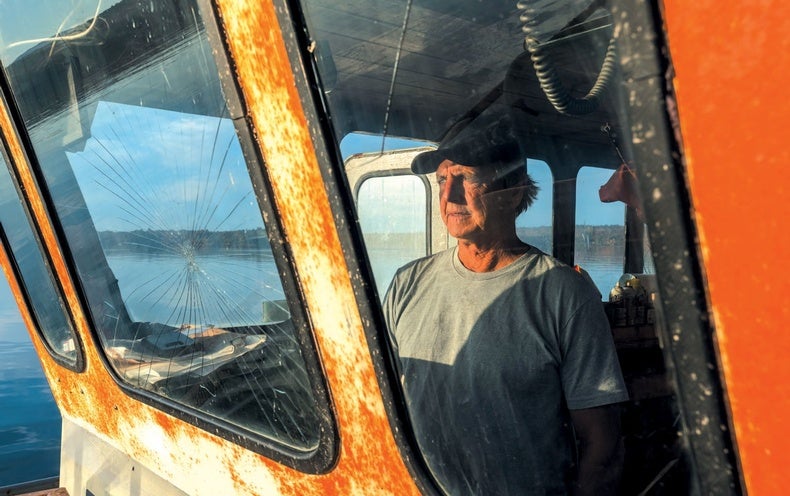Innovative Fish Farms Aim to Feed the Planet, Save Jobs and Clean Up an Industry's Dirty ReputationCarter Newell owns and operates one of the mo...
Published on by Trudi Schifter, CEO and Founder AquaSPE

Carter Newell owns and operates one of the most productive mussel farms in the state of Maine. One frigid spring morning I joined him and his two-person crew on a short boat ride to the barge he calls Mumbles, a 60-by-24-foot vessel anchored that day in a quiet cove in the brackish Damariscotta River. Named for the Welsh seaside town where Newell once did research, Mumbles was tethered to a steel-framed raft hung with hundreds of 45-foot ropes, each thick with thousands of mussels in various stages of development.
I shivered in the piercing wind as a crew member stepped from Mumbles onto the shifting raft to identify mussel ropes ready for harvest. Newell remained on the barge to helm a 16-foot crane that hauled up the designated ropes, each heavy with a Christmas tree–shaped aggregation of roughly 3,000 mussels. An outsized brush then swept the bivalves off the ropes and into an enormous stainless steel bucket. Another machine funneled them into a heavy polyethylene bag the size of a baby elephant, from which they were poured onto a conveyor-belt apparatus to be scrubbed, sorted and bagged. Newell designed this ungainly Willy Wonka–esque apparatus over decades in a costly process of trial and error that faced—and ultimately overcame—several challenges, including protecting the mussels from turbulent seas and voracious eider ducks.
As he oversaw the morning harvest, Newell, who has a Ph.D. in marine biology, talked some science—the dynamics of phytoplankton, why nitrate chemical concentrations increase in the winter, how chlorophyll levels for the entire coast of Maine can be mapped with just three satellite images. Mostly, though, he talked about mussels: their life cycle, their geographic distribution, how to prepare them (don’t spare the garlic) and—critically—how best to farm them without going broke. “Fish farming is no way to make a quick buck,” he told me.
Attached link
https://www.scientificamerican.com/article/innovative-fish-farms-aim-to-feed-the-planet-save-jobs-and-clean-up-an-industrys-dirty-reputationTaxonomy
- Fish Farming
- Fisheries governance